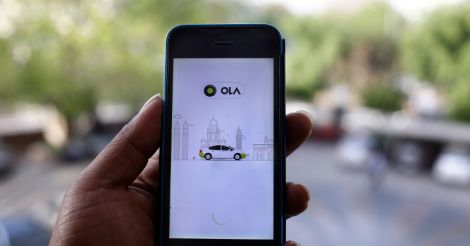I run the risk of being branded anti-labor for saying this but a section of organized labor and their political masters are decadent because they are unaware of the changing times or just adamant in their resistance to change.
This thought was triggered by the humiliating treatment meted out to a woman cab driver from fellow taxi drivers in front of the Kozhikode railway station. I also have in mind the attacks targeted at modern taxi services such as Uber. Conventional taxi drivers may not like modern services but passengers have enough reasons to rely on these services, be it Uber, Ola or She Taxi that caters to women.
Read: Amid call for cash-less India, this Kochi woman was threatened for hiring Uber cab | Video
Unruly auto-taxi drivers block singer Sayanora's Uber cab | Video
Kochi woman's viral-video effect: Railway says no ban on online taxis at stations
Internet-connected services ensure that passengers can hail a cab which is closest to them. They also give customers a good idea of the fare even before the trip starts. They use Google Maps to pick the shortest and less crowded route.
Passengers can even send their relatives or friends key information to track their movements, making such services safer for them, especially women. The ride-hailing companies have put up mechanisms to monitor the drivers’ behavior and discipline errant drivers based on passengers’ complaints.
These services are a win-win situation. I know of drivers who earn up to Rs 50,000 a month by attaching with the mobile-enabled ride-hailing companies.
How do they compare with the good old taxis? I leave that to your judgment.
Why are our taxi drivers like this? They refuse to change when the times change. But the workers do not realize that this refusal is a cover-up for a larger betrayal.
We only have to think of those who agitated against the introduction of computers because they thought the machines would take away all the jobs. We have seen many of them lining up to train them in computing later. Now they can’t even think of a day without internet.
Our trade unions and political parties cannot outlive the worn-out slogans and forms of protest. Novel protest forms can evolve only when there is a new line of thinking.
However, they cannot ignore the changes for long. By the time they realize that they have been outsmarted, it would be too late to catch up. The only way ahead for them is to intimidate others. When that does not work, they scramble to stay in business. Our trade union leaders have become a mafia that pushes workers to such a miserable plight.
Leaders who are ushered in from outside the workforce often have no idea of the problems in the sector or the transformation of the workspace. They are insensitive to the pain of the workers. Their expertise lies in knowledge of several labor rules and skills in negotiating with the government over wage hikes. That may be the reason why some jobless advocates double up as leaders of the workers. We have trade unionists who helm up to 10 unions simultaneously.
They are least bothered in understanding the changes happening around them or to make workers aware of the transformation. They know that any attempt to do so would be at the risk of being irrelevant. However, let us not forget that there are a few trade union leaders who work for the improvement of the workers they lead.
Taxi drivers have not been able to form a network despite having unions with a national presence. Had they put up a united front, no one, not even Uber, would have been able to get a foothold in India.
Incidentally, Uber had left out Thrissur and Kozhikode after feasibility studies conducted by the company found that passengers in these two cities were satisfied with the services of auto rickshaw drivers.
You cannot blame one for doubting that multinational companies have a tacit understanding with local trade union leaders. The leaders may gradually convince their flock that it is better to make peace with the multinational giants. Prima facie, this sounds a good thing but that only results in a monopoly of trade. The trade union leaders of today might well be consultants for the monopoly later. The workers may be the only ones to suffer in the bargain.
Workers’ associations have to realize that customers of the new generation will not stand by any service that does not appease and protect them. They also have to realize that their associations have the fuel to progress in tune with the times. Workers in each sector must take the initiative to use their potential to stay relevant.
(The author is a filmmaker-cum-actor)

























 Representational image
Representational image